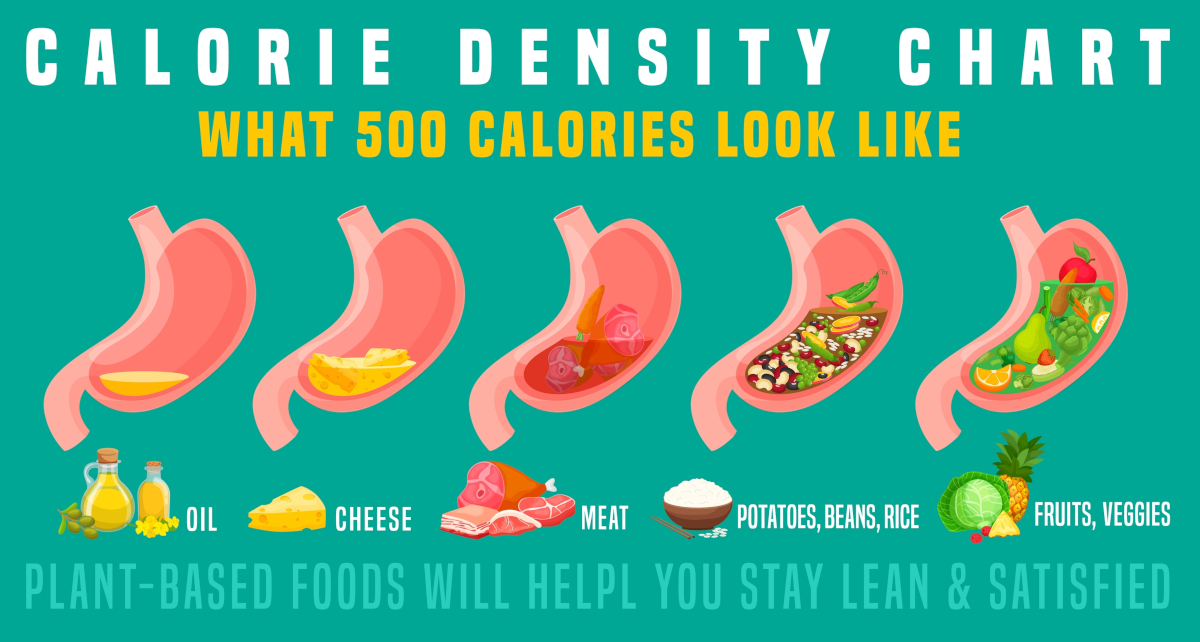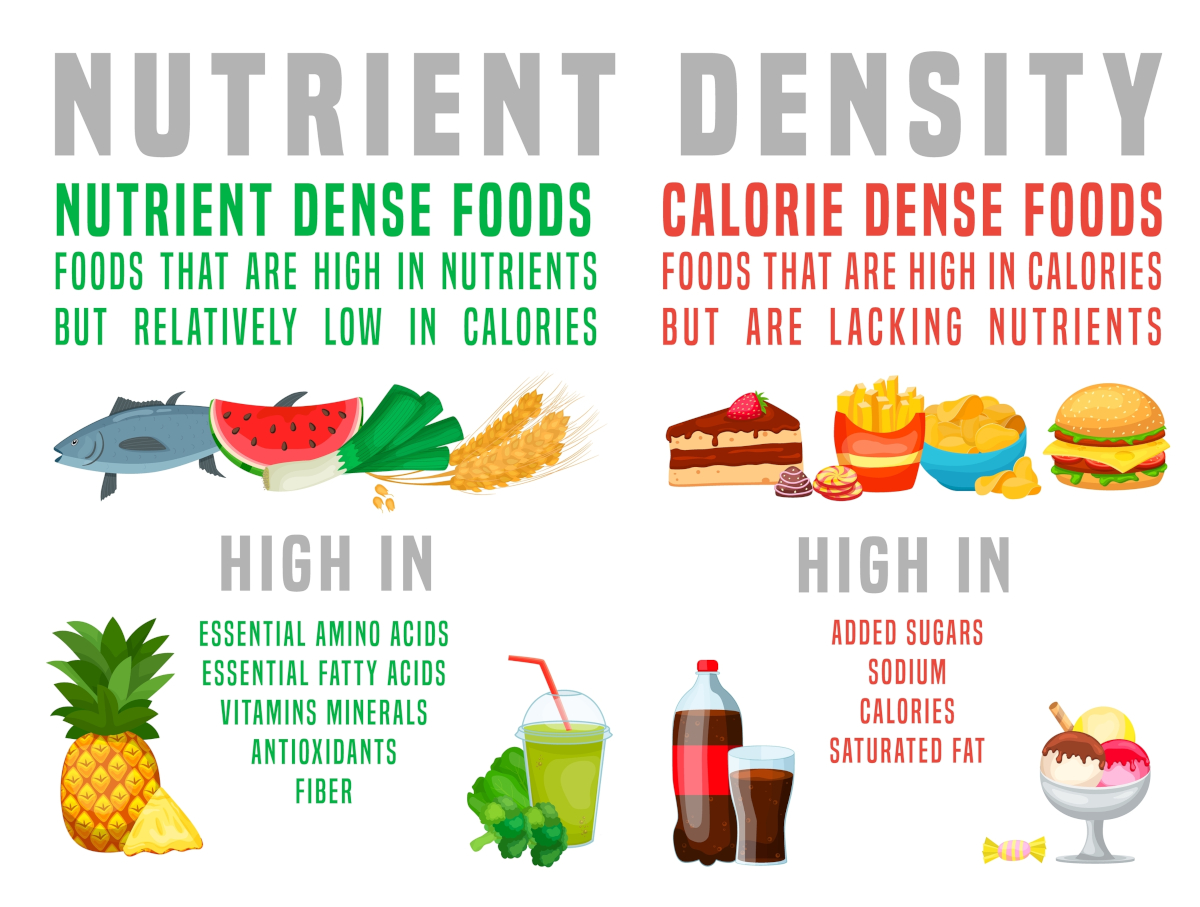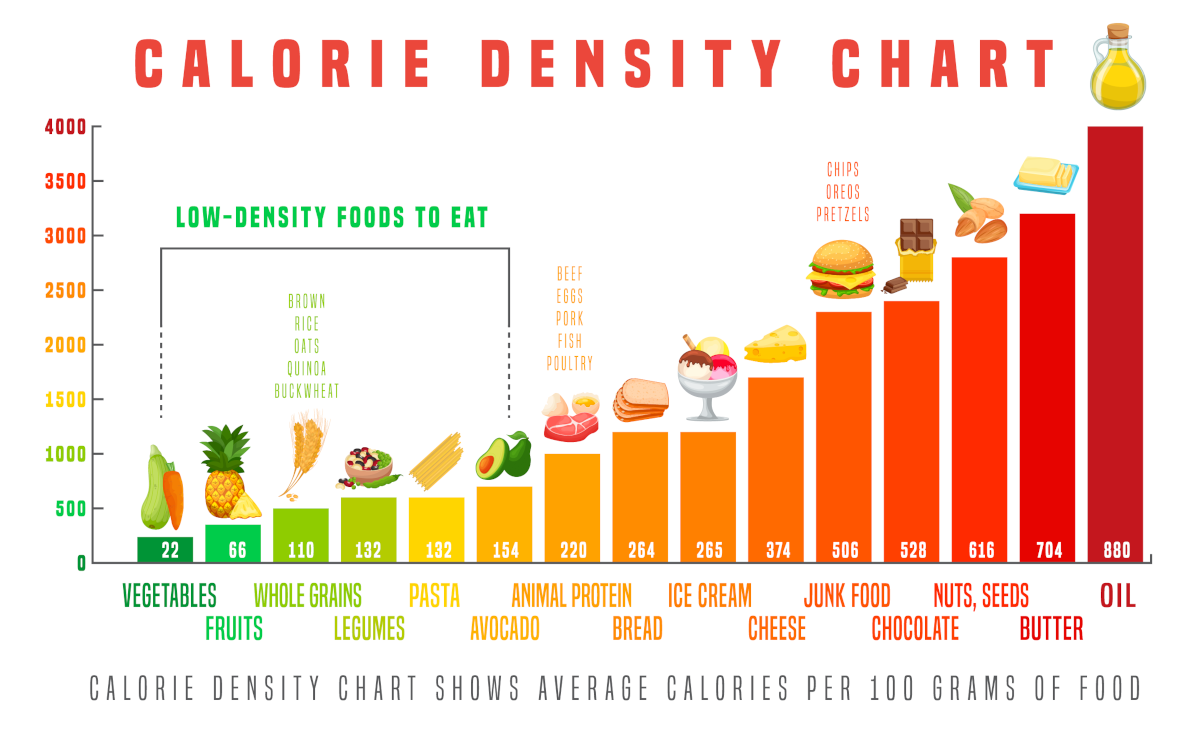Plant Based Nutrition
Plant- based nutrition is a comprehensive approach for eating to thrive. At the Logos Academy, we see food as spiritual. God, the Good, and Mother Nature provide everything we need to sustain our bodies, illuminate our minds, and awaken our hearts.
You must use your will to angle your intention toward the Good. When you do, the energy you put into your program will amplify itself and begin to work for you and with you. Plant- based nutrition is a systematic approach to getting and staying well. Plants nourish, heal, and sustain.
 Metabolic Health
Metabolic Health
Millions of people die each year because of poor lifestyle choices and lack of proper nutrition, but their deaths are the result of many years of poor decisions. It has taken generations for us to decouple ourselves from the natural instinctual intelligence that lives within our bodies. When we eat well and live well, we feel well. There’s no mystery there. It’s natural to feel well, but unnatural to be plagued by metabolic diseases—which are emerging as a global pandemic. This is primarily driven by an unhealthy culture and association with processed foods, especially those saturated with sugar, salt, and fat.
In 2022, 18 million people in the world died from cardiovascular disease. In the United States, one person dies every 37 seconds from cardiovascular disease. Forty percent of Americans are obese, and another 30 percent are overweight. Type II diabetes has skyrocketed among American youth. By 2030, the costs from type II diabetes alone will be in the neighborhood of $622 billion. Those are hard facts to face. Much of what we are seeing in the global collapse of health outcomes is directly linked to the excess consumption of highly processed food, which is full of sugar, salt, and fat.
As someone who has struggled most of his adult life with addiction to food and other substances, my heart goes out to those people with similar problems. The good news is that we can change. We can confront the underlying health issues by changing our eating habits, thereby bringing better health to our nation and the whole world.
I am not judging people who have food addictions. Rather, I am fighting for them with the same determination that I have applied to my own health. If you think that changing your behavior or patterns of eating will be a struggle, consider the difficulty of being diagnosed with cardiovascular disease, diabetes, or cancer. Suffering has been a call for me to awaken to the things that are meaningful and essential in my life: my health, my family, my friends, and my faith in God and Goodness. I hope your suffering will become the impetus for you to change your behavior, so you can have a much higher quality of life.
It’s Not Your Fault
If you’re addicted to processed food, and have or have the signs of chronic disease emerging, it’s not entirely your fault. Our culture has insidiously devolved into unhealthy behaviors. Our brains are wired-up to our culture that has become sick. You can evolve from those unhealthy behaviors into healthy ones by reversing the process and heading back up the evolutionary scale. You must assert your will by seeking support from others who can help you to break the patterns of unhealthy behaviors. It’s not easy, but it’s possible.
I’ve found that many people who are not addicted to unhealthy food, but still eat it, can easily break their old patterns, become well again, and stay that way. For those who have long been plagued by addictive patterns, chronic stress, and traumatic experiences, it can be more difficult.
You don’t have to be controlled by the unhealthy American culture or your mind and emotions. When you understand how your brain and nervous system are interfaced with a culture that promotes unhealthy choices, it will be much easier for you to take your power and control back over your eating habits—and your whole life.
 Eating Plant-Based Foods for the Right Reasons
Eating Plant-Based Foods for the Right Reasons
Eating plant-based helps our brain recognize and desire healthy life-giving foods. Plant-based nutrition is good for you; eating more plants will make you feel good. It is that simple.
The Self-Organizing Principle
To achieve long life and a have a healthy body and appearance, you must take the consistent small steps that are required to produce and stabilize those outcomes naturally. You may not live long, death can come for any of us at any time. The purpose of eating well is to increase our quality of life while you are alive, making every moment count.
As you participate in an eating program that is aimed toward nourishment and well-being, the energy you put into your practice will bring your intentions into alignment with the principle of self-organization. This is the natural result of working diligently to break unhealthy patterns while focusing on feeding the body nourishing food. The body will reveal a wisdom of its own. You will be guided by the innate intelligence of your body, which is primed by eating well to align your will with the principles of harmony, helping you live a life that is geared toward the Good.
Primarily Whole
Eat whole foods that are minimally processed, such as nuts, seeds, legumes, fruits, vegetables, and whole grains. If you buy packaged food, make sure to read the labels and understand the ingredients.
Mostly Plants
Eat a wide variety of plants. Healthy cuts of wild-caught fish, small amounts of meat from grass-fed animals, and small amounts of organic dairy products may be acceptable if your constitution allows for it. Focus your energy on building your meal plan around plants. Do not build your meal plan around meat and dairy.
Variation
Keep your food intake diverse. Keeping variety in your diet ensures that your body is getting all the nutrients it needs to thrive.
Variety also keeps you from getting bored with your new eating plan.
 Always Nourishing and Delicious
Always Nourishing and Delicious
Plant-based food is the most delicious food you can imagine if it is prepared properly. I will teach you how to use herbs and spices to make plant food pop with flavor.
High in Nutrients and Low in Calories
Programming your meal plans with high nutrients and low caloric values is essential for eating enough food, feeling satisfied, and keeping your body in optimal health.
Consuming nourishing food is a body-mind phenomenon that promotes the self-organizing principle. Plant- based nutrition produces a sense of spiritual and physical well-being.


 Eat for Your Constitution
Eat for Your Constitution
Each person enters the program with a different relationship to food. You will begin slowly and build healthy adaptations to the new program. Positive reinforcements are generated when you consistently eat food that nourishes your body and mind. Start with a salad and drink plenty of water, instead of soda or other sugary drinks. Gradually allow the energy from the food you eat to generate the positive expression in your body that will amplify over time.
You cannot achieve until you concede. You cannot win until you begin and you cannot start at the finish line. Self-organization works through small consistent changes that build in amplitude over a period of time. This will bring about a new era in your life, relative to the food you desire. You will now look forward to eating healthy food and will turn away from unhealthy food.
Fiber
We have been told that there are two types of fiber, soluble and insoluble. While there may be only two primary types, there are a plethora of fruit and vegetable subtypes. These subtypes create healthy gut microbes and fungi that are key to gut health and immune function. Insoluble fiber ferments in the human stomach, creating a fatty acid called butylate, which nourishes the cells of the stomach and colon.
In the past, nutritionists recommended using fiber to help food move quickly through the colon. Today, they see fiber as a major nutrient that plays a critical role in gut health and immune function. When you eat a variety of types of fiber from plant food, you create a healthy gut, which ensures a healthy body and mind.
Optimal Gut Health
Health begins with the gut. Your stomach, which has half a billion neurons, communicates with your brain, heart, liver, and lungs. It is the center of your immunity, controlling 70 percent of your immune function. If you put sugar, fat, and processed food into your gut, your brain will crave those foods. If you do that for years and years, you will create a pattern that will be difficult but not impossible to break. When you eat nourishing foods, the body recognizes that nourishment and desires that food.
Over time, our eating habits may have created problems with your health. As you age, these habits can create chronic inflammation, indigestion, allergies, and a host of other illnesses and conditions. Eventually this will result in dependency on pharmaceuticals to manage symptoms.
If you created a disease with your lifestyle, it can be cured by changing how you live.
 Epigenetics
Epigenetics
There are three factors to consider in understanding chronic and acute disease: genetics, lifestyle , and environment.
Genetics plays a huge role in how disease unfolds. For example, your family members may have a predisposition to get heart disease or cancer.
Lifestyle plays a critical role in how your genes are expressed. If you eat large amounts of meat, dairy, sugar, fat, and salt, your body will become more vulnerable to the diseases you are predisposed to.
Environment is also a critical component to your health. If you work in a place where you are exposed to toxic chemicals of any kind, you are exposing yourself to potential disease. If you associate with people who do not care about their health,
you may share their ignorance of healthy behavior.
Epigeneticists are scientists who study how our behavior and environment can change the way our genes work. They have discovered individuals who have inherited genes for cancer or other diseases. These individuals can mitigate the risks of developing those diseases by becoming aware of how they eat, where they work, and their genetic predisposition to certain diseases.
Many of our problems stem from a lack of understanding how these three components shape our overall health profile.
Intermittent Fasting
Intermittent fasting allows the body time to repair and clean itself. It is important to give your body 12 to 16 hours of rest from food every day. Your body will tell you when to eat. Coffee, tea, and water are acceptable, but only if you don’t add sugar, which will induce an insulin response and break your fast.
Keeping your eating window to 8 hours a day ensures proper digestion and cellular absorption of nutrients and gives your body time to eliminate metabolic waste and regenerate at the cellular level. Fasting has long been known to be beneficial.
Many people report that they feel closer to the spiritual realm and God when they fast.
Longer fasts are not recommended until you have practiced intermittent fasting for some time.
I have found that when I practice intermittent fasting, it promotes itself through the feelings of well-being that I get. Then I don’t want to eat until my body tells me it wants to eat.
I follow the same program I’m sharing with you. It takes time, but so does illness. Striving to be well by nurturing yourself is not easy, but it’s a better alternative to coping with chronic illness. Put your discomfort into something constructive, rather than eating the wrong food and getting ill, which is debilitating and destructive.
Take your time adapting to your new eating and fasting plan. Rome wasn’t built in a day. You can’t restore your health to optimal levels overnight. You must be patient but persistent as you rebuild healthy patterns of behavior.
Breaking and Making Patterns
Your habits around eating follow a pattern, which was set at some point in your formative years. If that pattern includes eating too much of the wrong kinds of foods, or too little of the right kinds of foods, your health was probably affected.
However, you can break old patterns and make new ones. Understanding how the brain has formed its relationship with food through exposure to an unhealthy culture is primary. Then you can begin to build a new relationship with food, associating it with a sense of well-being.
 Phytochemicals
Phytochemicals
Phytochemicals, which are active compounds found in plants, are the most understudied groups of chemicals. Nutritionists focus primarily on macronutrients (proteins, fats, and carbohydrates), giving little attention to the phytochemicals, the compounds that produce the colors, smells, and flavors of plant food. Those colors, smells, and flavors reconnect us with healthy foods, creating a natural pleasing effect on the brain.
Phytochemicals encode the gut, brain, and nervous system to recognize healthy food. Processed foods synthetically mimic natural colors, smells, and flavors to attract us to those foods, but they rob mother nature of her complex attributes, and cost us our health.
Adaptation
It takes time to adapt to eating for vitality, instead of eating for emotional satisfaction. Long-term transformations arrive through small but consistent growth. Over time, you will achieve a sense of complete satisfaction from the food you eat. Eating well is the foundation for a balanced physical, emotional, mental, and spiritual life. If you don’t eat well, you cannot think well; and if you don’t think well, you cannot feel well. Since your health problems become amplified as you age, it is vital to preserve and prolong the quality of your life by taking care of yourself, whether you are young or old. It is never too late to begin to correct your course.
Food Sensitivity
When I first started eating plant-based food, I added a salad to Amy’s organic frozen dinners, dressing the food up with tomatoes and my own spices. As I began to venture into making more and more of my own plant-based meals, I found that I could not digest the plant fiber very well. I would get mentally fatigued from breaking old eating habits and trying to create new ones.
Then I would relapse into eating unhealthy food and feel great for a few minutes, followed by feeling horrible. Remember, when we eat we are not only dealing with physical sensitivities and allergies, but also with the mental and emotional sensitivities that come with trying to break attachments to foods that have comforted us our whole lives, especially when we were in distress or just wanted pleasure.
You have to be keenly aware of your body as you program your new eating plan. Progress takes time. Give yourself the opportunity to learn from the process. Although I’ve been learning about nutrition and how to nourish my body with healthy foods for over twenty-five years, I keep learning more.
Once you eat nutritious plant-based food, your body will heal itself from many physical and psychological ailments. Most people do very well on plant-based diets. Eating plant-based food does not mean that you have to totally exclude meat and dairy from your diet, just be sure to purchase fish that is wild-caught in the deep ocean and meat and dairy from grass-fed cows raised by local farmers. If you cannot do that, you will be better off totally eliminating factory-farmed meat, fish, and dairy, which are full of unwanted hormones and antibiotics. You can get all your nutrients from a plant-based diet alone.
Supplements
Whether or not you are on a plant-based meal plan, I recommend supplementing your diet with iron, zinc, and magnesium, vitamins C, D, B12, and B complex, essential omega-3 oils from fish or algae, and a basic multivitamin. I always have electrolyte powder to take after an intense workout, or when I get sick.
Get blood work done and check with your doctor to learn if your vitamin and mineral levels are normal, and then supplement your diet as needed.
Listen to Your Body’s Intelligence
Today, there is no shortage of nutritionists who will tell you that healthy eating is all about calorie intake. If you are overweight, they will say that it is your fault because you eat too much. That is only partly true. While paying attention to calories is important, it is the quality of the calories you consume, not the quantity, that is most important. Food is more than calories. There are enzymes, fiber, and a host of other nutrients that we need to be aware of for optimal health.
Ingesting 100 calories from a can of Coke cannot be compared to ingesting 100 calories of fresh-squeezed orange juice. The calorie content is identical, but Coke lacks the complex nutrient-profile that plants provide. Ingesting high-calorie, low-nutrient foods will eventually undermine your health. Diet is cumulative in its effects, be they good or bad. So, tune out the dietary noise, experiment with plant-based food, and pay attention to how you feel.
Anyone can tell you how to eat, but it is only you who can do the work. If you give plants the opportunity to show you how they can benefit your health, you will know what is true. You will become objective proof that consistently eating a wide variety of plant-based foods is the best way to increase creativity, productivity, and long-term health.
Think farm-to-table, and you will do just fine.
 Start Today
Start Today
Don’t waste time. Start eating healthy food now! You will have the support of a growing community of individuals who are transitioning from old patterns of thought and behavior around food to eating more plants for health and vitality. Food is meant to be sensual and satisfying to every cell of your body.
Plant-based nutrition is not a fad. It is backed by science, and you will see a profound change in your life when you begin to eat a healthy diet.
Consistency
Stay consistent in the healthy foods you consume. We all have trouble breaking old patterns. In the beginning, if you are relying on heavily processed foods, are obese, or have other metabolic conditions, consistently eating healthy food may seem difficult. Stay with it until the self-organizing principle begins to work for you!
Once your body starts to heal, your mind will too. The way your brain sees food will change. You will no longer want unhealthy food, because you will see it for what it is- undesirable junk.
Sign Up Today for Nutritional Counseling
Begin your new journey of health and well-being by filling out and submitting our Self- Inquiry form
